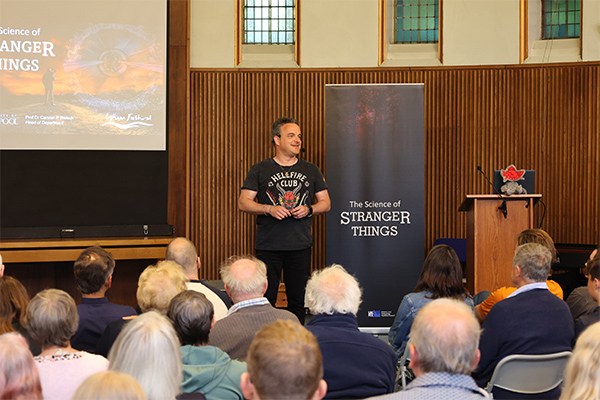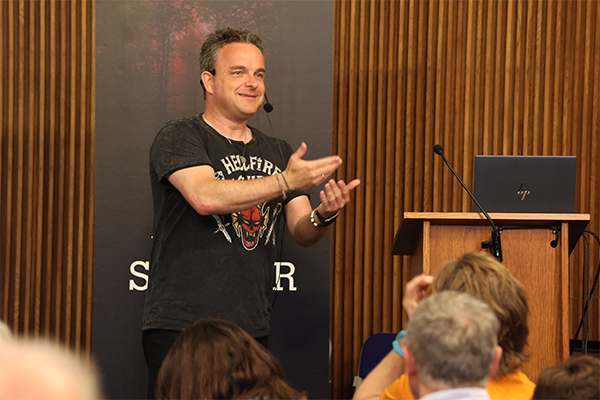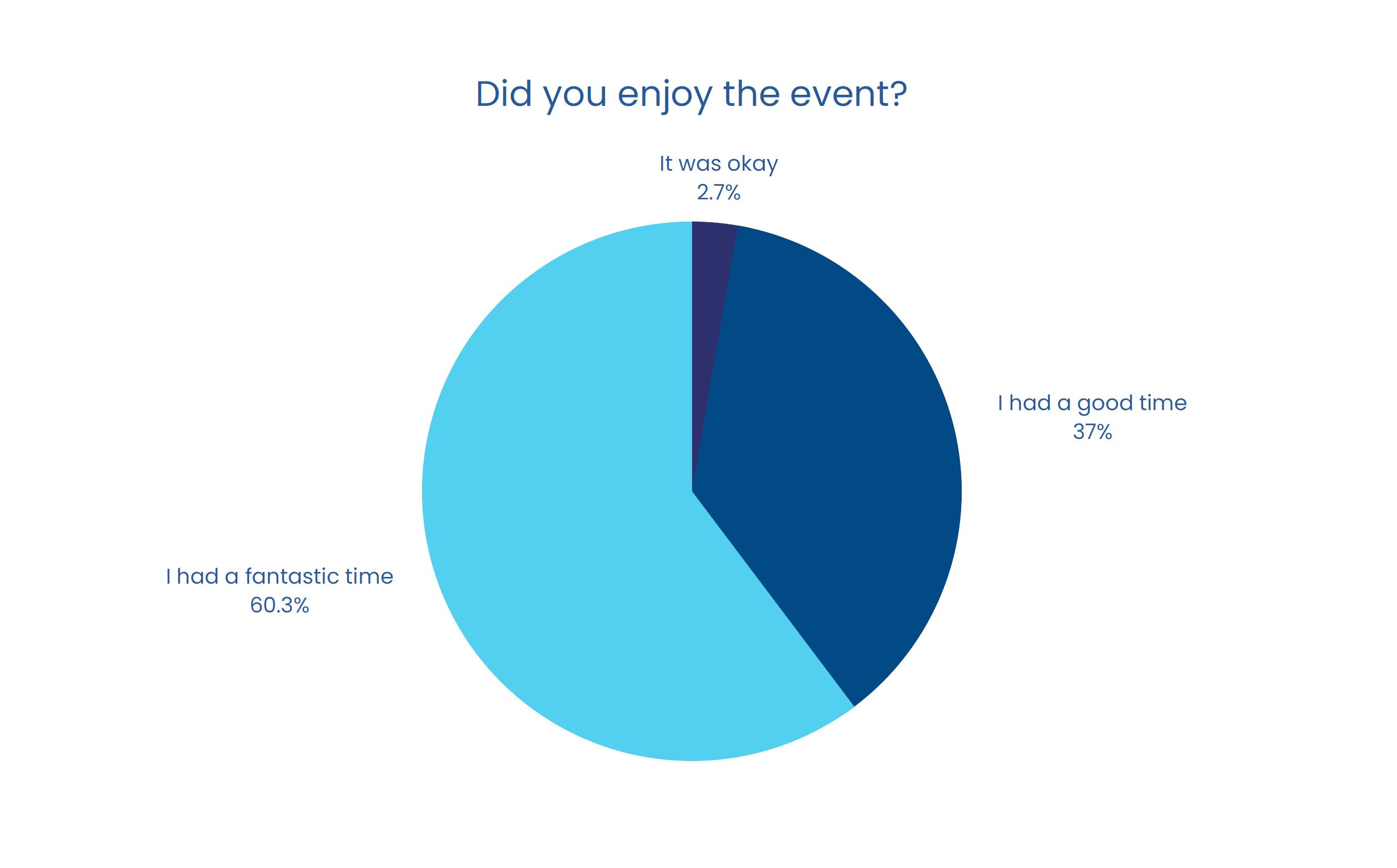Upside down – The Science of Stranger Things

In a small town where everyone knows everyone, right next to a mysterious laboratory, a peculiar event about supernatural powers, parallel dimensions and portals to another world, mesmerized the audience.
Prof Carsten Welsch returned to Lymm Festival on 28 June 2023, a local summer festival, bringing families and friends together in a variety of organised events, to take an entertaining look into the science behind the sci-fi horror Stranger Things. The Netflix hit series is set in 1980s Indiana. A group of young friends witness supernatural forces and secret government exploits. As they search for answers, the children unravel a series of extraordinary mysteries, experience psychokinetic powers and venture into the Upside Down. The Upside Down is described in the show as an alternate dimension that mirrors our world, an extra dimension that can be accessed through a mystical portal. This all sounds more like fiction than fact, but is it?
Using actual scenes from the Stranger Things series, Prof Welsch examined some of the technologies and elements that feature in the films and showed how they relate to the world of physics and connect to the research programmes that physicists from the University of Liverpool and the Cockcroft Institute are involved in.
“[The event] has made me more curious and it put names to notions I had vaguely understood.”
The talk attracted over 80 people of all ages from the local community, some even travelling from Liverpool, Prescot and Stockport. Prof Welsch explained how accelerator physics connects with the real world and the use of accelerator applications in daily life in an interesting and humorous way, which was accompanied by laughter and applause from the audience.
“I have not been to university or had a physics lesson but enjoyed and understood the explanations tonight and the excellent presenter!”

The Q & A session after the talk was very well received and triggered questions about the Big Bang, the existence of parallel universes, Liverpool’s involvement in the discovery of the Higgs particle, quantum physics and much more.
The feedback from the event was remarkable with one attendee stating that “it changed [their] perspective of how physics can be taught” and another one saying that the best thing about this event was “hearing someone talk with such passion, explaining complex and difficult ideas!”
“Please come back next year! Thank you.”
86% of the participants indicated after the event that they know about the use of accelerator applications in daily life, compared to 22% at the start of the evening. With 90% stating that they are now aware of Liverpool’s connections to a global community, compared to 35% before.

The event was a great success, and everybody left with a big smile on their face. Prof Welsch and his helpers from the QUASAR Group thoroughly enjoyed the evening and the amazing audience. A big thank you to the organisers of Lymm Festival and the wonderful group of volunteers for making this event possible.
Stay curious!